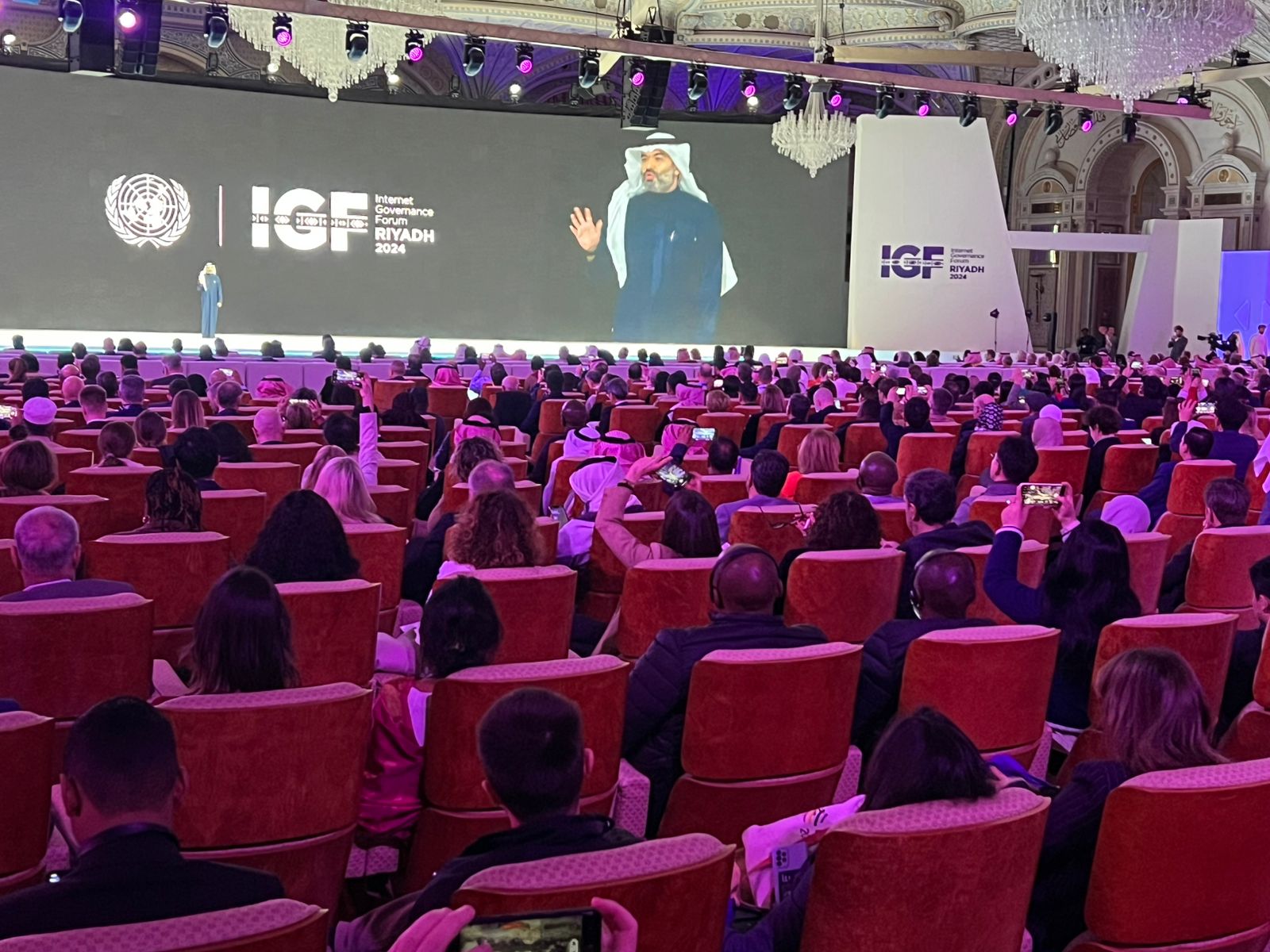
The 19th Global Internet Governance Forum (IGF 2024), the largest international platform for discussing the future of the internet and the development of digital technologies, has come to an end in Saudi Arabia.
The annual event was attended by more than 11,000 people from 140 countries, making IGF 2024 one of the largest in its history. Over 300 high-level meetings, sessions and conferences on core issues of digital development, internet governance, and security took place over five days.
The Russian delegation, led by Deputy Minister of Digital Development, Communications and Mass Media Andrey Zarenin, was actively involved in the work of the forum. The delegation included experts from the Coordination Center for TLD .RU/.РФ, Center for Global IT Cooperation, Kaspersky Lab, Positive Technologies, Alliance for the Protection of Children in the Digital Environment, and other companies and public organizations.
The forum participants focused on the pivotal aspects of the digital future, such as the efforts to introduce innovations and managing risks in the digital space, promote the role of technology in maintaining peace, and encourage sustainable development and inclusion. Particular attention was paid to protecting human rights in the digital environment as well as improving internet governance processes.
The world’s leading experts, including representatives of the UN and UNESCO, highlighted the necessity for a comprehensive approach to the internet governance. The proposed initiatives included the measures to develop transparent and ethical AI systems, ensure equal access to technology, reduce the digital divide, and support sustainable development.
The youth track received a special focus during the IGF 2024. Members of the Coordination Center Youth Council, jointly with the School of International Information Security, organized two sessions to discuss the phenomenon of digital twins and ways to achieve personal sovereignty on the internet.
Additionally, members of the Youth Council held a series of interviews with top internet experts to discuss the development trends and the future of the internet, current problems and challenges, and the role of youth in governing the digital space.
This year’s forum took place following the adoption of the Global Digital Compact, aimed to create a fair and inclusive internet governance system. Russian experts contributed to the compact’s development; however, according to Director of the Center for Global IT Cooperation Vadim Glushchenko, its implementation will face serious challenges, particularly the resistance from global digital platforms and transnational corporations, as well as the problem of technological inequality between countries.
“This year’s Global Internet Governance Forum has clearly identified the main challenge of today and the near future – namely, the gap in opportunities to create conditions for the development and implementation of AI technologies,” Andrey Vorobyev, Director of the Coordination Center for TLDs .RU/.РФ, emphasized. “The digital divide is entering a new phase, shifting towards uneven access to AI – which may affect global technology development and widen the gap between countries and regions,” he added.
The next annual Global Internet Governance Forum will take place in Norway in June 2025, concluding the current 10-year mandate. At the World Summit on the Information Society (WSIS+20) in September 2025, the UN General Assembly will sum up the outcome and discuss a possible extension of the IGF mandate.



